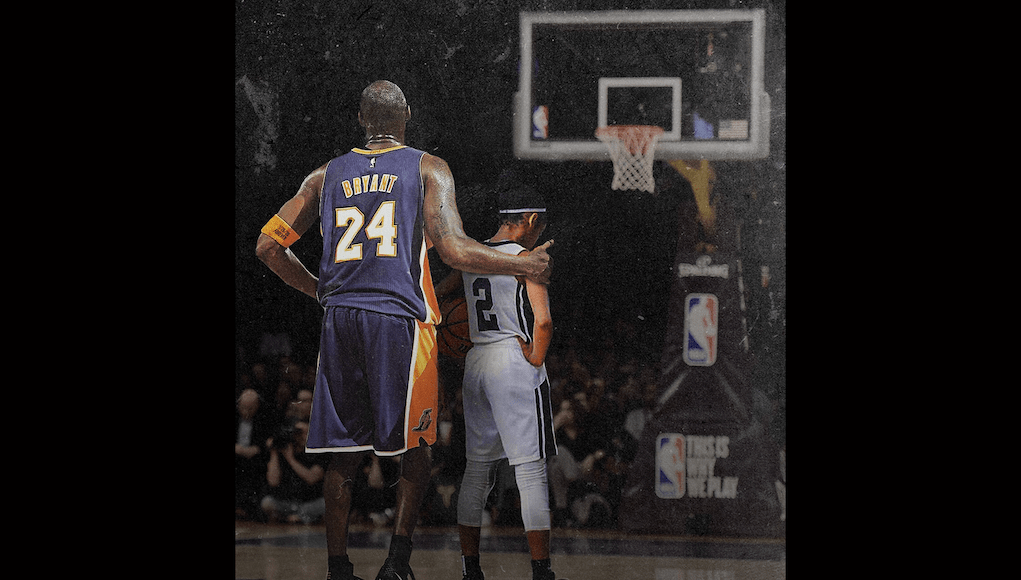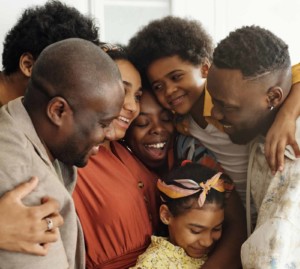Getting Clearer: The Power of Our Flowers

By: Carlos Moreno, Danique Dolly and Javier Guzman
Black Mamba. Gigi. When we lost Kobe Bryant and Gianna Bryant, we also lost a beautiful and public relationship between a Black father and his daughter. Amidst the melancholy brought on by the almost non-stop coverage of their passing, footage of Kobe and Gigi together spoke to an intimate and loving relationship that we can relate to as fathers and as educators. It is easy to recognize in those moments—of him coaching her from the sidelines, a loving embrace shared between the two—what it looks like for a devoted adult to teach a youth how to navigate in this world. Kobe redefined for some, or just mirrored for those who know better, that the simple act of taking someone under your wing is a key practice in communities of color. It wasn’t only basketball that Kobe was teaching. He was also instructing Gigi on intimacy—what it feels like to be loved, cared for, taken seriously, inspired and in awe of each other.
It’s not surprising that such an observation would lead to tears. And so, we weep.
Kobe’s past was not perfect, but there is no doubt that his forward path was colored by a newfound appreciation of the power of love and nurturing. He was ready to take all of his acquired expertise, bundle it, and hand it off to others. That future, that abundance of possibility, was cut short in a moment, along with futures that were to be equally bestowed by baseball coach John Altobelli, his wife Keri, and their basketball star in her own right, daughter Alyssa. Bestowed by mother and daughter Sarah and Payton Chester, Mamba Academy basketball coach Christina Mauser, and pilot Ara Zobayan.
And still, we weep.
But we are not alone.
Think back to the outpouring of human emotion from such athletes as Shaq, Lebron, Doc Rivers, Allen Iverson, and Dwyane Wade. They, and many others, displayed deep sorrow in a public way, sharing their memories, successes together, highs and—yes—lows and challenges. In reflection, we see something of a rebirth in men. We observe as they hug their loved ones ever tighter, seizing the moment to reaffirm their caring. Not leaving anything to chance. We are reminded of Kanye’s advice in his song Big Brother – an ode to his mentor, Jay-Z: “If you admire somebody, you should go ahead and tell them. People never get the flowers while they can still smell them.”
Even as we mourn, we celebrate the emotion displayed by these famous Black personalities. We are prompted—as men of color ourselves—to consider the importance of what we’re seeing. It is good for us to see our leaders cry, especially leaders of color. Good to see them letting their guard down. Showing their vulnerability. If there is anything fortunate to be borne of this tragedy, it is that the world must bear witness to these very human displays of emotion, especially those coming from strong Black leaders. There are many reasons for leaders of color to be guarded and suppress their full selves, operating often in a society that’s hostile to them is just one example. This rare and special kind of leadership can and should inspire new generations of leaders to seek and lead lasting change.
Too often, leaders are expected to be both tough and strong. As male leaders of color, we are often looked upon to be courageous and heroic in infallible ways that often deny our humanness. Considering the kind of leadership we see as vital in meeting today’s demands, we point to specific phrases and actions that may cause tension in the development of a compassionate and vulnerable leader.
Big boys don’t cry. In our early childhood years, many boys hear this phrase—usually at times when they are most upset or vulnerable. Not only is this statement untrue, but it also portrays crying as a weakness as if it’s simply something that boys, and men, do not do.
Man up! These words pervade our teenage years. Being a man is seen as super strength. As if masculinity alone will save the day. Alas, we know too well the toxicity that accompanies this perspective. A statement designed to create strength in ourselves damns the strength of our relationships with others from the get-go.
Be a fearless leader! As school and organizational leaders, this expectation goes beyond tears and assumes that effective leaders should not possess fear or anxiety, that being scared breeds fear in others. Truth be told, we are often scared. We simply try to fight and see our way through those feelings.
It takes true strength to allow oneself to feel and embrace a full range of emotions, and even more strength to emote in a public forum. It takes true courage to be fearful instead of fearless. The question then is: is there an opportunity in this tragic loss to reaffirm our pursuit of Black leaders who will, in the strength of their vulnerability, lead the change our country needs? President Obama reminds us that “change will not come if we wait for some other person or some other time. We are the ones we’ve been waiting for. We are the change that we seek.”
We recommend we employ/adopt new mantras:
Show and express love. But what does it mean to lead with love? If we’re learning from Kobe, it’s about creating those sacred and bonding moments where you have complete belief in the enormous potential of others. We have to pull in our staff, our schools, our districts, our educational system and begin with the truth…
Mentor others. Share with others the privileged knowledge you possess. Mentorship begins with truth sharing. “You see this here…this is how this works…this is how you might enter into this space,” and so on.
Put in the work and partner with others who will do the same. Leadership, and particularly in education, can be an isolating place. This is not a recipe for excellence. We need to seek others out who will be in community with us, pushing us to be better versions of ourselves, understanding that the extraordinary potential we try to instill in others, also applies to us.
We are desperate for authentic, compassionate and vulnerable leadership and especially so now that we have lost a member of the community who so embraced these characteristics. As we continue to mourn the loss of Kobe, Gigi and the seven who died with them, let’s also “send flowers” for leaders and loved ones—all whom we admire—while they’re still alive?
Show love by sharing you, your vulnerability, your talents, and feelings, now, while we all can celebrate the scent and witness the beauty—and power—of our flowers.
For other blogs in the series, see:
- Getting Clearer: The Educational Imperative
- Getting Clearer: Educator Movements
- Getting Clearer: HQPBL As An Equity Imperative
- Getting Clearer: We Are All American Sons
Stay in-the-know with innovations in learning by signing up for the weekly Smart Update.
This blog is part of an ongoing Getting Smart series called Getting Clearer. The nature of this series and of our blog is to have a diverse set of voices and ideas to help us and our audience get clearer. Are there topics that you’re interested in #GettingClearer about? Email [email protected] with “Getting Clearer” in the subject line.
Carlos Moreno, Danique Dolly and Javier Guzman are leaders at Big Picture Learning, @bigpiclearning, a student-centered school development partner that is best in class at learning through internships. Follow them on Twitter: @Carlos_Moreno06, @DrDaniqueDolly, @bigpicjavier.






0 Comments
Leave a Comment
Your email address will not be published. All fields are required.